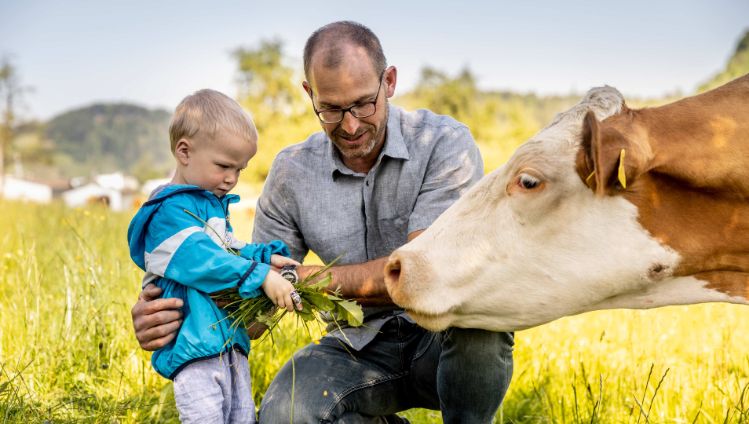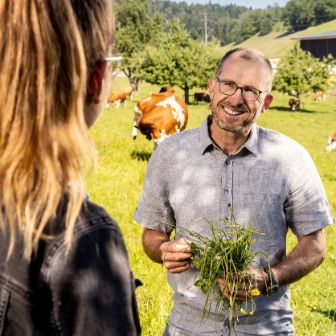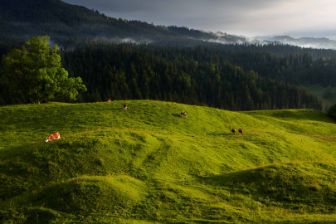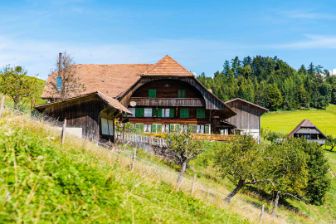
“We will only achieve our goal by working together”
With a new overarching approach, Emmi wants to harmonise economic, social and environmental aspects even more closely in future. But how can climate action be reconciled with dairy farming? We asked Peter Meier, Head of Milk and Cream Purchasing Switzerland.

Peter, dairy farming and climate action: do the two go together?
Both are mutually dependent: farmers are more dependent on climate and weather than any other profession, especially when it comes to the quality of roughage. A healthy environment is the basis for high-quality and nutritious milk. At the same time, sustainable grazing increases the humus content in the soil and thus binds harmful CO2. But it’s also no secret that while ruminants are efficient at turning grass into protein-rich milk, digestion produces polluting methane. We need to step up our efforts in this area, for example by optimising feed conversion or increasing the useful life of cows. I also have high hopes for feed additives that significantly reduce methane production during digestion.
Emmi would like to reduce overall CO2 emissions by a quarter by 2027 – is that realistic?
It’s ambitious, and we are aware that we will only achieve our goal by working together. The focus must be on practicable and economically sensible approaches. In Switzerland, we are currently engaged in intensive exploratory talks with the Federal Office for Agriculture, industry organisations and other partners on various climate change mitigation projects.
Will milk substitutes, such as Emmi’s “beleaf” range, replace milk?
Dairy products are part of the cultural heritage in many regions of the world and consumption is growing worldwide. Thanks to its familiar taste, naturalness, nutritional benefits and increasingly sustainable production methods, milk will not be displaced to any significant degree by plant-based alternatives. They are an attractive alternative, however. I think it’s good that through the “beleaf” brand we have an option for consumers who want to have a varied diet – and indeed, with products made in Switzerland using local ingredients, such as Swiss oats.
Sustainable dairy: Our goal by 2027
We want to process 100% sustainable milk worldwide. In our domestic market of Switzerland, where sustainability has long been a key differentiation criterion compared to milk products from other countries, we support the development of the "swissmilk green" industry standard.



